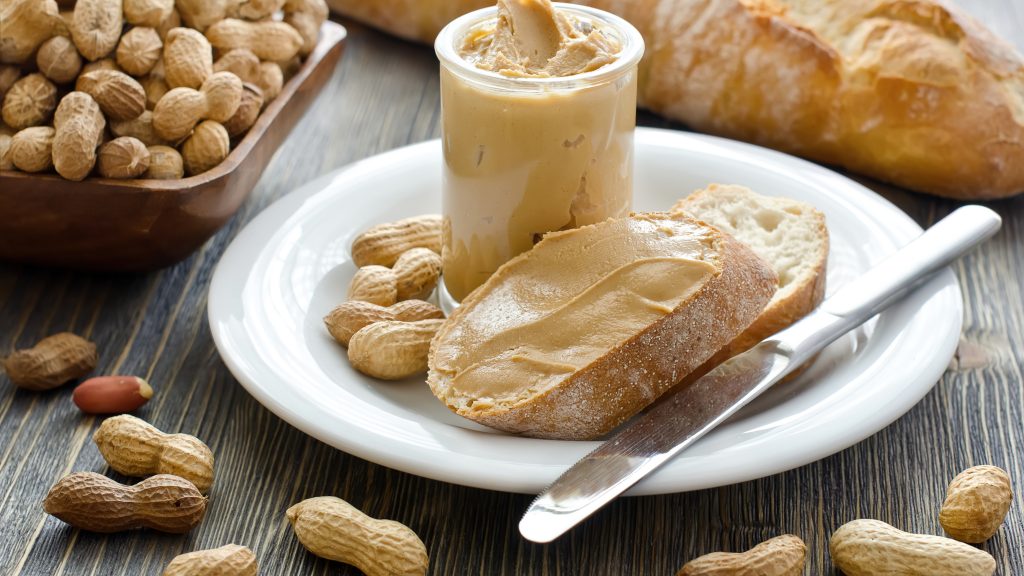- Peanut Butter: The Classic Choice
- Almond Butter: The Heart-Healthy Spread
- Cashew Butter: Creamy and Nutrient-Dense
- Walnut Butter: Boost Your Brain Health
- Incorporating Nut Butters into Your Diet
- Hazelnut Butter: A Decadent Delight
- Sunflower Seed Butter: Nut-Free Alternative
- Tahini: The Sesame Seed Sensation
- Comparing Nutritional Profiles
- Creative Ways to Enjoy Nut Butters
Peanut Butter: The Classic Choice

Peanut butter is the most well-known and widely consumed nut butter. Rich in protein, healthy fats, and fiber, it’s a great option for those looking to maintain a balanced diet. In addition, it contains essential vitamins and minerals like magnesium, potassium, and vitamin B6. Be sure to choose a natural peanut butter without added sugars or hydrogenated oils to maximize its health benefits.
Almond Butter: The Heart-Healthy Spread
Almond butter is another popular choice, offering similar nutritional benefits to peanut butter. However, it boasts a higher concentration of monounsaturated fats, which are beneficial for heart health. Moreover, almond butter is a good source of vitamin E, an antioxidant that helps protect cells from damage. Opt for a natural, unsweetened almond butter to reap its full benefits.
Cashew Butter: Creamy and Nutrient-Dense
Cashew butter is a creamy and delicious option, providing a significant amount of healthy fats, protein, and essential minerals like magnesium, copper, and zinc. These minerals play crucial roles in supporting bone health and maintaining a strong immune system. Like other nut butters, choose a natural, minimally processed cashew butter without added sugars or unhealthy fats.
Walnut Butter: Boost Your Brain Health
Walnut butter, though less common, offers unique health benefits. Rich in omega-3 fatty acids, it supports brain health and helps reduce inflammation. Furthermore, walnuts are an excellent source of antioxidants, making walnut butter a great addition to your diet for overall health. As always, choose a natural, unsweetened product for the best results.
Incorporating Nut Butters into Your Diet
Nut butters can easily be added to your daily meals. Spread them on toast, blend them into smoothies, or use them as a dip for fruits and veggies. You can also incorporate them into your baking and cooking to add flavor, richness, and nutrition to your favorite recipes. Remember to enjoy them in moderation, as they are calorie-dense.
Hazelnut Butter: A Decadent Delight
Hazelnut butter is a rich and indulgent option that offers a unique flavor profile. High in healthy fats, fiber, and protein, it can be a nutritious addition to your diet. Hazelnuts are also packed with essential vitamins and minerals like manganese, copper, and vitamin E. To fully enjoy the health benefits of hazelnut butter, opt for a natural, unsweetened version without added sugars or unhealthy fats.
Sunflower Seed Butter: Nut-Free Alternative
Sunflower seed butter is a fantastic alternative for those with nut allergies or sensitivities. It boasts a creamy texture and a slightly nutty flavor while providing a good amount of healthy fats, protein, and fiber. Additionally, sunflower seed butter is rich in vitamin E, selenium, and magnesium, which are essential for maintaining overall health. Look for a natural, unsweetened sunflower seed butter to incorporate into your diet.
Tahini: The Sesame Seed Sensation
Tahini, made from ground sesame seeds, is another excellent nut-free option. With its distinct flavor and smooth texture, tahini is a staple in many Mediterranean and Middle Eastern dishes. It is a good source of healthy fats, plant-based protein, and essential minerals like calcium, iron, and magnesium. Choose an unprocessed, pure tahini for the best nutritional benefits.
Comparing Nutritional Profiles
When choosing a nut or seed butter, it is important to consider their nutritional profiles. While they all contain healthy fats, protein, and essential nutrients, each type offers unique health benefits. Comparing their nutritional content can help you make an informed decision based on your personal dietary needs and preferences.
Creative Ways to Enjoy Nut Butters
Besides the traditional ways of incorporating nut butters into your diet, there are countless creative options to explore. Try using nut butters in salad dressings, sauces, or as a base for energy balls and snack bars. You can also experiment with adding them to oatmeal, yogurt, or even savory dishes like curries and stir-fries.
By exploring the wide variety of nut and seed butters available, you can enjoy diverse flavors and textures while reaping the numerous health benefits they provide. Remember to consume them in moderation and opt for natural, unsweetened options to maximize their nutritional value. Happy tasting!

